
Most read profiles in 2023: What top CEOs taught us about triumphs and regrets
- Published By The Statesman For The Statesman Digital
- 1 year ago
Nobody abandons their childhood. That is what you learn when you sit with business leaders. They carry their core childhood experiences to corner offices, boardrooms and the heads of tables.
The BusinessWeek has always published a dizzying variety of profiles of top executives and business leaders.
As the year comes to an end, we look at what content has proved most popular with our readers.
Here is a glimpse of the top 25 most- read CEO stories this year.
Take the example of Sheila Ochugboju, the executive director of Alliance for Science, an only child, who carries with her great expectations from her mother.
Former Chief Justice of Kenya Willy Mutunga’s socialisation during Kenya’s struggle for independence informed his sense of justice.
Business tycoon Manu Chandaria’s childhood under the industrious influences of his father and uncles informed his keen sense of business.
Caroline Njuguna, the country director of PATH, a global public health non-profit, was shaped by her father’s affirmation. “As a firstborn,” he told her, “if you fail everybody behind you flops.” Talk of pressure. Or motivation.
You also learn that luck and fate collude to propel men and women to greater heights. That while others do not recognise opportunity, others see it and embrace it quickly making the difference between crossing that threshold of success or not.
But almost all of these men and women we profiled this year have a great sense of purpose. They are all in a season of questioning not just their contributions to their organisations but to humanity. They want to leave deeper footprints in the sands of life.
They ask themselves what all this means when it does not move any needle of humanity. Which makes them mostly vulnerable and humbled not to have all the answers. And it is a great point to have a conversation with anyone, this point of vulnerability.
Manu Chandaria's only regret at 95

Manu Chandaria speaks during an interview at his home in Muthaiga on September 4, 2023. PHOTO | BILLY OGADA | NMG
Dr Manu Chandaria’s world is now small. It’s mostly limited to his Nairobi’s Muthaiga home, upstairs in the sunny playroom, where he sits in a chair next to the unlit fireplace with a dozen framed pictures of his family, facing a window wall overlooking his tranquil garden.
There, he plays a game of Patience on his phone, a solitaire type. Save for a closing door or the light footfalls of the house staff or his wife on the wooden floors, the house remains tomb-quiet.
We asked him if his view on money changed over time.
"No. Money is a medium. To handle money, you have to first who you are. Use money for a purpose, not the other way around. Money will never help you find your purpose. My brother was a clothes horse. He had 150 suits. But I don’t because that is not what has shaped me. I mean, you can’t wear two suits together. I can afford 50 suits, but should I own 50 suits? You have to use wealth to serve humanity, not just yourself," he said.
Letter that won ex-Kemri boss freedom

Former KEMRI Director Davy Koech in a past court hearing. PHOTO | POOL
Former Kenya Medical Research Institute (Kemri) managing director Davy Koech, who was facing a six-year sentence after failing to pay a fine of Sh19.3 million, sat down and penned a letter to President William Ruto, seeking pardon through the Advisory Committee on the Power of Mercy.
“I have been in prison for the last year serving a six-year jail term... Now at 71, and while incarcerated, my health, Sir, has deteriorated. I’ve suffered a severe stroke and I am hypertensive. Medical doctors have determined that I am neither fit to stand further trial nor am I able to instruct my legal counsel. Similarly, I’ve suffered depression, I am now stuttering in my speech and of diminished cognition,” he wrote.
“Sir, though not without fault, I have served Kenya, Africa and mankind with courage, honour and sacrifice as Kenya's longest-serving CEO of a State corporation. I helped Kemri to raise, variously, over Sh10 billion in research funds and grants.”
Leonard Ithau on finding life purpose at 50
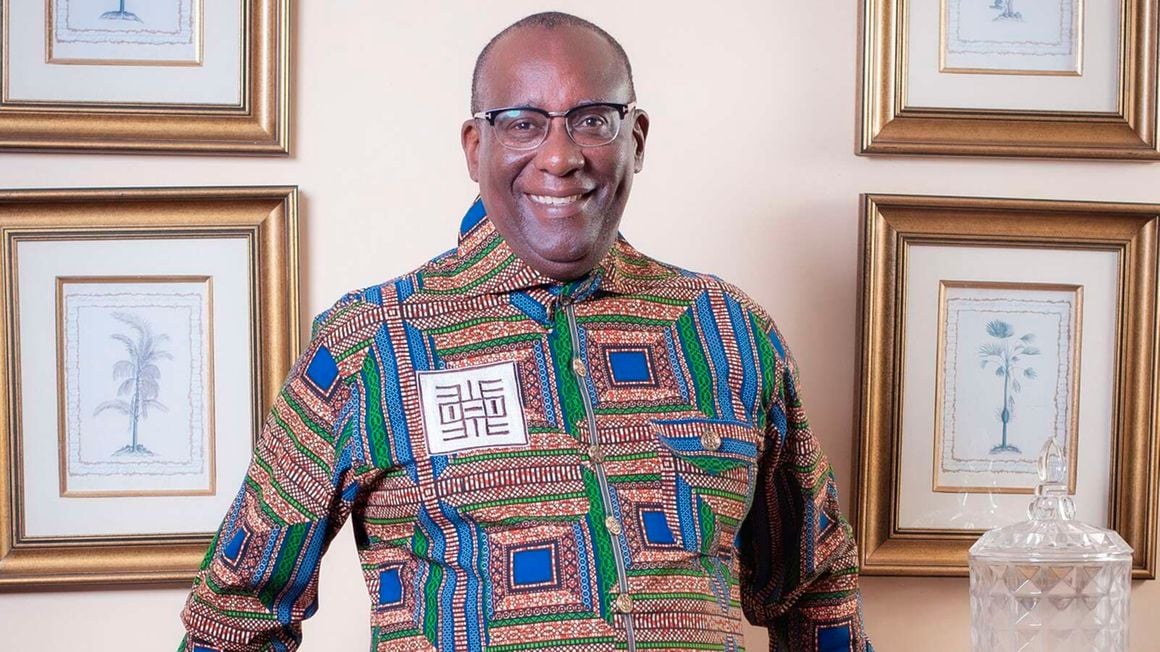
Leonard Ithau, Independent Director of the Kenya Revenue Authority. PHOTO | POOL
Leonard Ithau, a member of the Board of Governors of the Karen Technical Training Institute for the Deaf and an Independent Director of the Kenya Revenue Authority (KRA), reached a tipping point when he turned 50.
He had been questioning the idea of his sole betrothment to his career as an engineer, something he had done for 35 years, engaging in major engineering and building projects in Kenya and the region.
What kind of fatherhood advice would he give young people starting families?
"First, don't strain. Push evenly, push consistently, but not too hard. Secondly, just be yourself. It's hard to discover yourself but just be what your intuition is telling you to be, not what others are telling you to be. Listen to your gut," he said.
Peter Njenga: What I learnt from my polygamous family

KenGen PLC Managing Director and CEO Peter Njenga speaks during an interview on November 1, 2023 at Capital Club in Nairobi. PHOTO | BILLY OGADA | NMG
Peter Njenga, KenGen managing director and CEO grew up in a home that had many children. So, 33 children. He was the 12th child.
His father had three wives; the first wife had nine children, the second had 11 and he was the firstborn of the third wife, and they were 12.
Would he consider marrying many wives like his father?
"Do you know what happens when you marry many wives? You can’t treat them the same all the time. Your allegiance keeps shifting, And guess who suffers when she is a villain? Her children. I saw this and I promised myself I would have one wife and one family so that I provide for them, and the environment would be the same continuously," he said.
What are the pressures of being the man at the top, being a CEO?
"Anything goes wrong and fingers point at you. You have no shelter. Remember the famous blackout at the airport? I was maybe a week old in this role when it happened and some people were blaming me for it. 'He must be the one who has caused this problem,' they said.
These are things I have to accept. What’s important is to try and make everybody work as a team, for each one of us to start seeing ourselves as a part of that leadership," he said.
Caroline Njuguna: When daddy's girl joins the C-suite
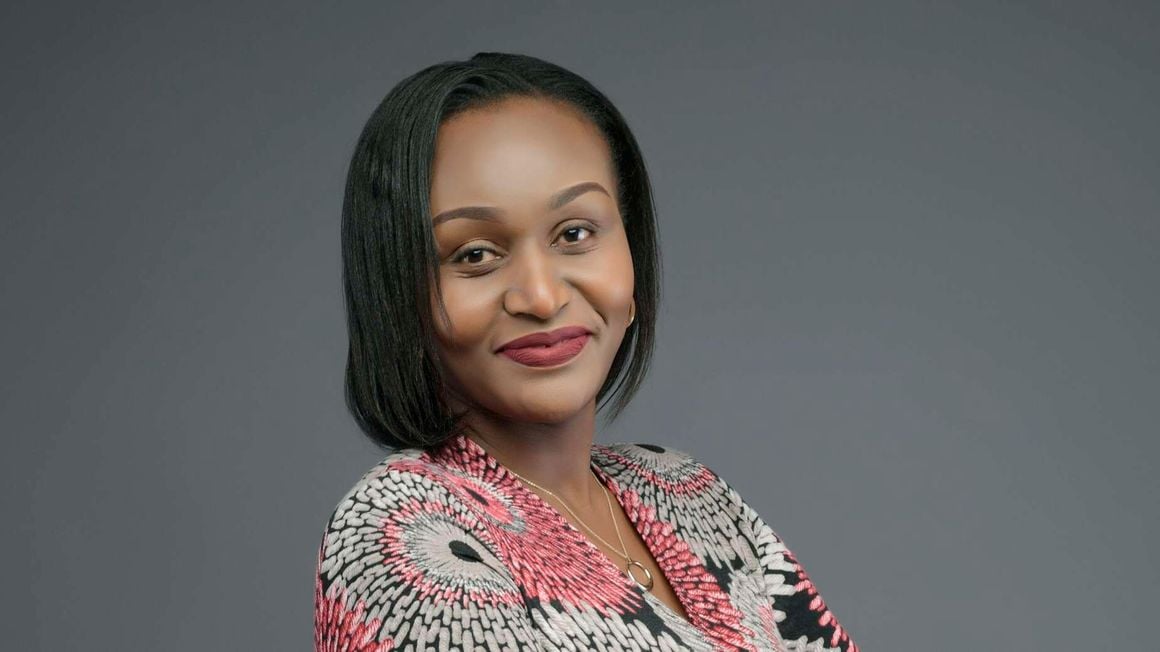
Caroline Njuguna is the country director of PATH, a global public health non-profit. FILE PHOTO | COURTESY
Caroline Njuguna, the country director of PATH, a global public health non-profit said when the position that she is holding currently fell vacant she was considered for it but hesitated because of biases that we have as individuals.
But her mentor told her, "the difference between men and women is that a man wouldn’t have hesitated, they’d take it and figure out how to do it." So I took the job.
Her secret to happiness? "Contentment. Just knowing what is enough. Somebody was telling me a story of a fisherman and his minimalist goal. So there was this white guy who kept observing what the fisherman does every day. He asked him, 'So what's your plan for today? Why don't you spend more time fishing and with the proceeds buy a bigger boat?' The fisherman asked, 'And then?'
'With the proceeds from the bigger boat, you could buy several boats until eventually, you would have a whole fleet of fishing boats,' the white man answered. 'And then?' the fisherman asked... Then make more money and buy an island.' And then?'
Maybe you’ve heard this story. It’s about knowing your limits. Not to say you stop being ambitious, but just to know it's okay to stop and pause and pat yourself on the back. Extend yourself some grace," she said.
Why Willy Mutunga wept
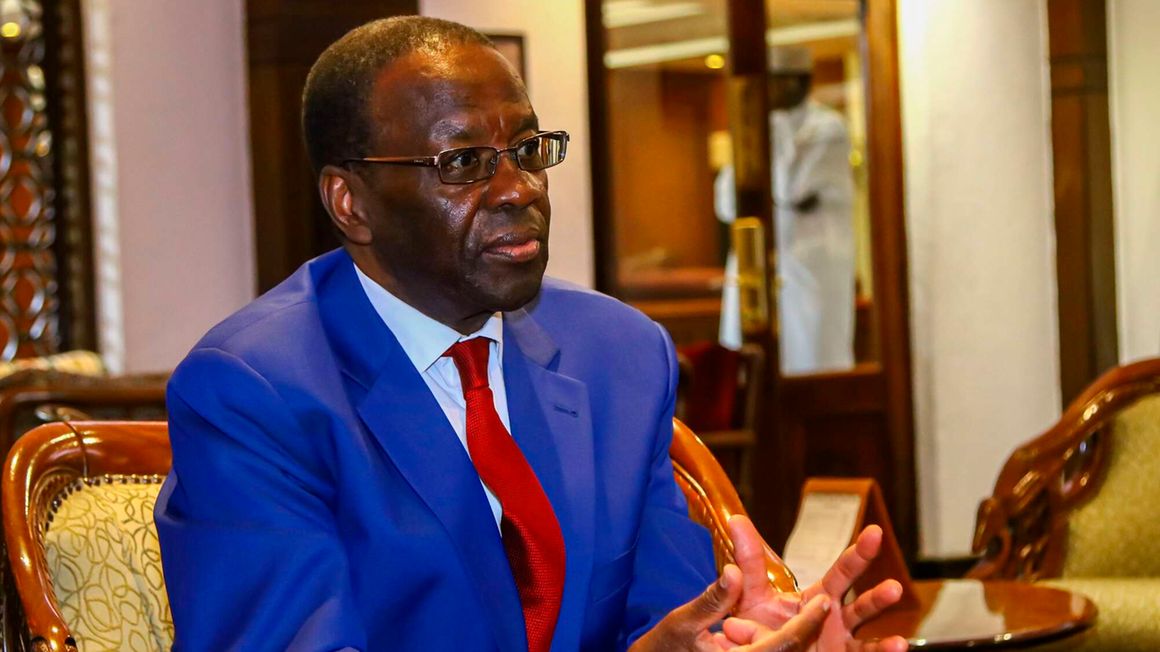
Former chief justice of Kenya Willy Mutunga speaks during an interview at Serena Hotel, Nairobi on September 15, 2023. PHOTO | WILFRED NYANGARESI | NMG
Willy Mutunga was the first indigenous Kenyan to teach constitutional law at the University of Nairobi. During his tenure at the university, he was detained for 16 months for his activism before exiling in Canada and returning to join the democratic struggle.
He has served in many civil society organisations, including the Kenya Human Rights Commission and the Law Society of Kenya, where he was chairman.
He has been the Chief Justice and President of the Supreme Court and played a pivotal role in the constitution-making process and the implementation of the progressive 2010 Constitution.
Were there any positives in being detained in 1982?
"Detention makes you reflect a lot. If you are detained with other people, like I was at Shimo La Tewa with George Anyona, Mukaru Oyugi, and Kamuaji Wachira, you have a lot of discussions. That helped a lot. But when I went to Manyani Prison, I was all alone. Manyani was extremely cruel. It was hot, and there were snakes. In the month I stayed there, I developed problems with my kidney and had to be airlifted. If I had stayed in Manyani for a long time, it would probably have affected my head because of the heat, torture, and loneliness. You can easily lose your mind. I don't know how Jaramogi Odinga survived in Manyani where Jomo Kenyatta detained him for 18 months," he said.
Sheila Ochugboju: Ph.D at 25, but 'unfulfilled' until motherhood
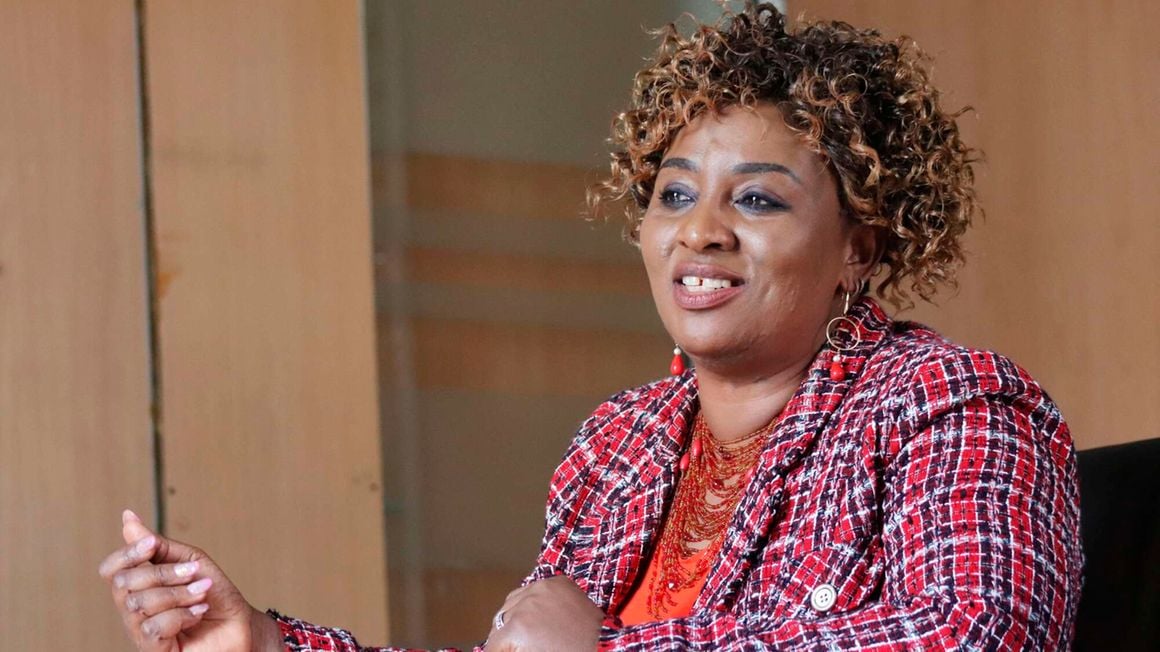
Alliance for Science Executive Director Dr Sheila Ochugboju speaks during the interview at the Nation Centre on June 22, 2022. PHOTO | DIANA NGILA | NMG
Sheila Ochugboju, the Executive Director of the Alliance for Science, said she was always trying to make her mother as happy as she could.
"And, the only thing that made her happy, forget the PhD at 25 and other career accomplishments, what made her happy was the four children I gave her. Then, I fulfilled my role in life. Those are the four children in the picture behind me," she said.
Does she ever suffer from imposter syndrome?
"People ask me that and I find it funny. The answer is no, because, number one, people never expect much from me. They don't. It's not as if when I enter a room, people go, "Oh my God, she's so wonderful." They don’t. What most think is that she's a black woman. She's a scientist, a black African woman scientist. Okay. Expectations are already set pretty low. The fact that I'm even halfway coherent can even say anything already. It doesn't take much to impress. I am shocked at how easily, especially in the international community, it is to impress people. They ask, "Oh my God, where did you learn this?" She said.
Alpesh Vadher: CEO who shuns extravagance
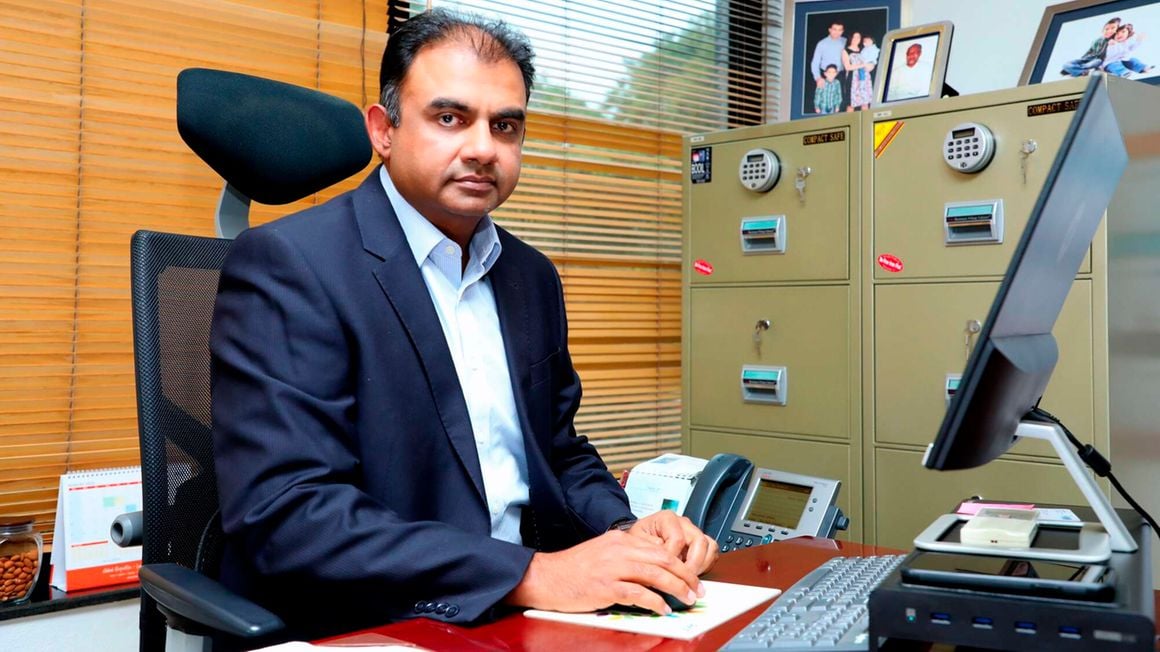
PKF East Africa Chief Executive Officer Alpesh Vadher speaks during an interview at his office in Westlands, Nairobi on August 28, 2023. PHOTO | LUCY WANJIRU | NMG
Alpesh Vadher, the CEO of PKF East Africa, leads a network of firms in Kenya, Uganda, Tanzania, and Rwanda. In his office, he has a gallery of framed testimonies: a wallful of World Cup cricket photos, grainy photos of the firm’s former partners, a handful of his wife and children, one of him meeting shaking the hand of a former president and of his deceased father, the man who raised him.
He said most people spend a lot of money on big houses. "But people like us don’t spend much time in those houses, and when we do, seven or eight of those times, we are asleep. If you are a workaholic like myself, you will spend your entire life in the office.
I want to see happy memories in my office. It’s some kind of mental yoga. It’s good to look up and remember where you have been and what’s important.
As someone in the money business, what is enough money?
"I read a book that said that if you look at your expenses for the year, multiply that by 25. If you have that kind of money, you should retire," he said.
Dr Edward Odundo: When retirement benefits boss retires
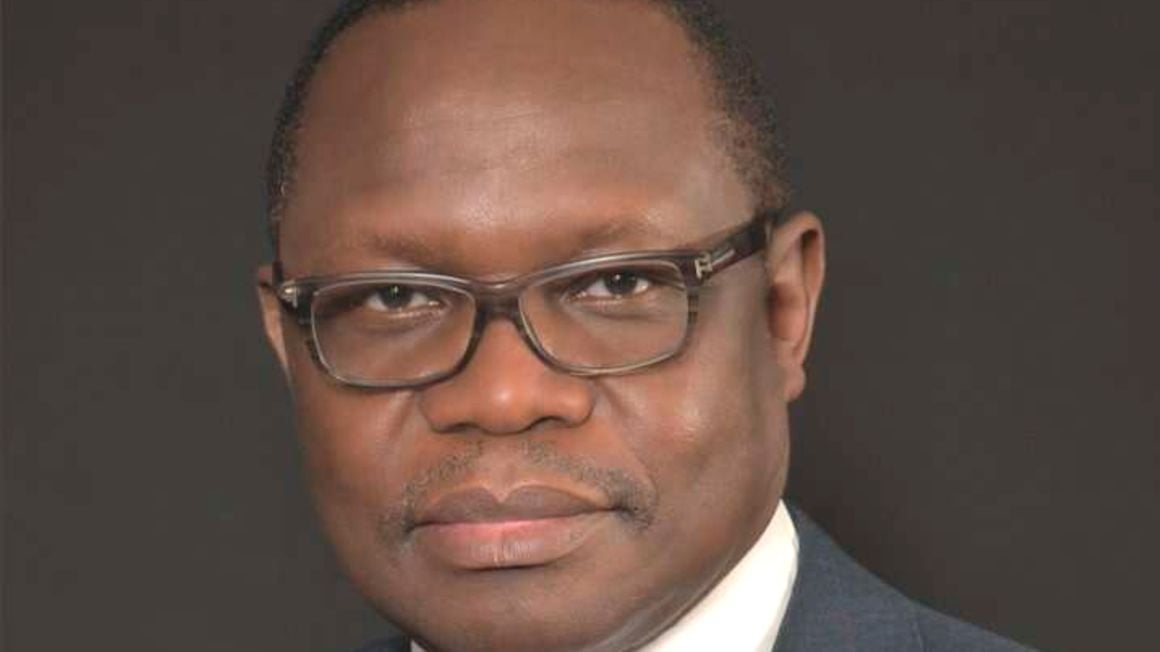
Dr Edward Odundo is the former CEO of the Retirement Benefits Authority (RBA). FILE PHOTO | POOL
After 40 years on the grind, now retired, is it difficult to adapt to the slower pace of life? Dr Edward Odundo, the former CEO of the Retirement Benefits Authority, says one thing he tells people about retirement is that you can plan for it, but when you get there, you discover that it is not what you thought it would be.
"Sort out your debts before you retire. Lastly, do something in retirement. You can’t just sit idle from dawn to dusk. It’s unnatural.
I’m teaching at the university and I do a few other things that keep me going. I lecture students in the morning, which helps my brain. I also sit on several boards and such things. Retirement is trickier for men than women. My wife has something to do with her fellow women. As men, we need to engage with each other more. Find charities to support, and give back," he said.
Chris Kirubi's daughter on running a tycoon's empire

Mary-Ann Musangi pictured at Olpul Steakhouse in Two Rivers. PHOTO | DIANA NGILA | NMG
When businessman Chris Kirubi died in June 2021, Mary-Ann Musangi took over the helm.
How is she fitting into the shoes of the tycoon who was an influential figure in the local business scene?
She says the way her late father inducted her into business was through a good education. She never accompanied him to the office to learn how to negotiate and discuss, only until much later, about 10 years ago when she started joining the boards of different companies.
“I would sit with him in board meetings. However, whenever he had a business colleague come home, I would cleverly be the one to serve drinks, food, and whatever they required so that I could listen to what was being discussed. That is how I picked lots of learning and experience from him,” she said.
Share on
Tags
SHARE YOUR COMMENT
MORE STORIES FOR YOU
Trending Stories
DJ Mo’s former illicit lo...
- Published By Jane
- January 15, 2024
Mapenzi! Zari and Tanasha...
- Published By Jane
- October 24, 2023
Zuchu Speaks on Diamond P...
- Published By Jane
- October 12, 2023
Hio Ni Upumbavu Wasituche...
- Published By Jane
- November 8, 2023
RECOMMENDED FOR YOU
Melanin Does Crack: Garni...
- Published By The
- April 21, 2025
The genetic mystery of wh...
- Published By The
- April 21, 2025
The Invisible Chains: Why...
- Published By The
- April 23, 2025
Severance to Adolescence:...
- Published By The
- April 21, 2025
Latest Stories
"They Aimed to Kill Gen Z...
- Published By The
- April 28, 2025
"Shame on You": Ruto Alli...
- Published By The
- April 28, 2025
"Pole Sanaa": Zuchu misse...
- Published By The
- April 28, 2025
Shock as KQ Flight to Tan...
- Published By The
- April 28, 2025



